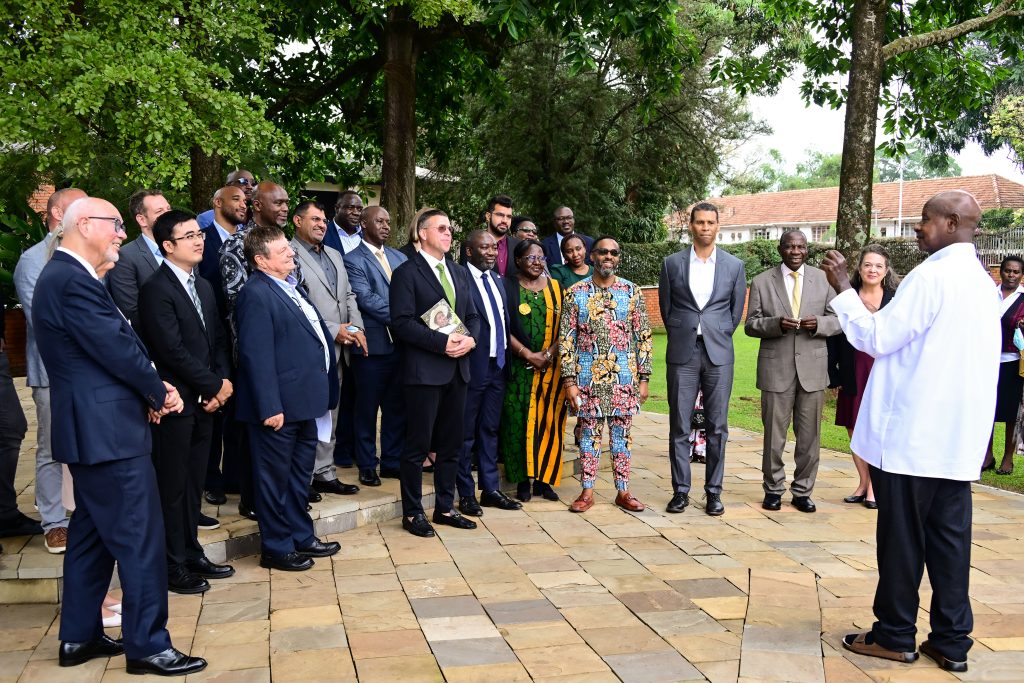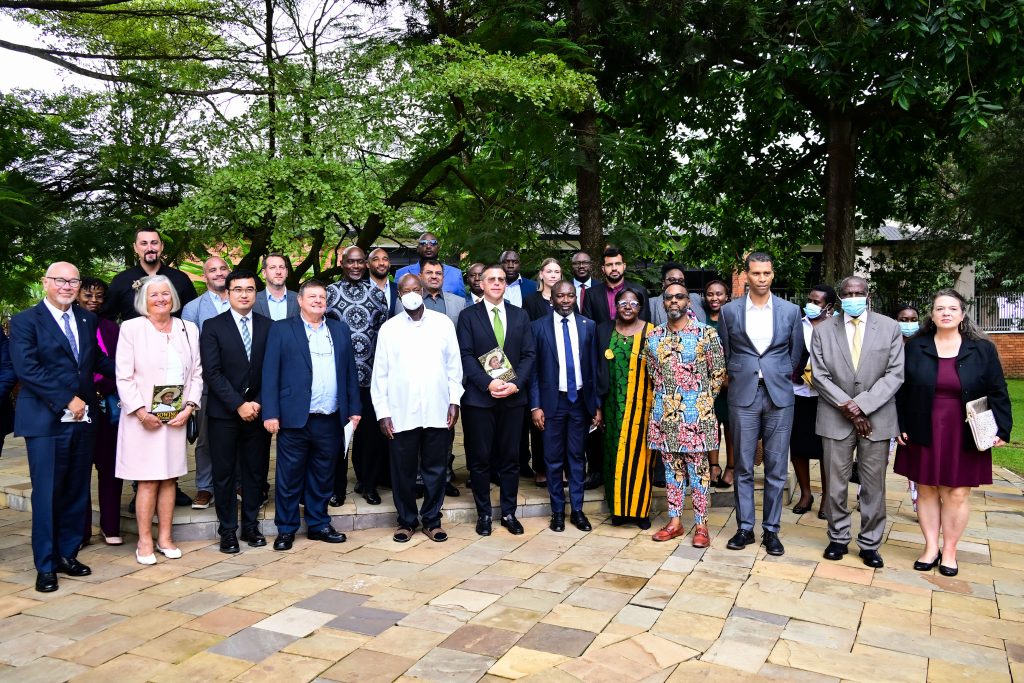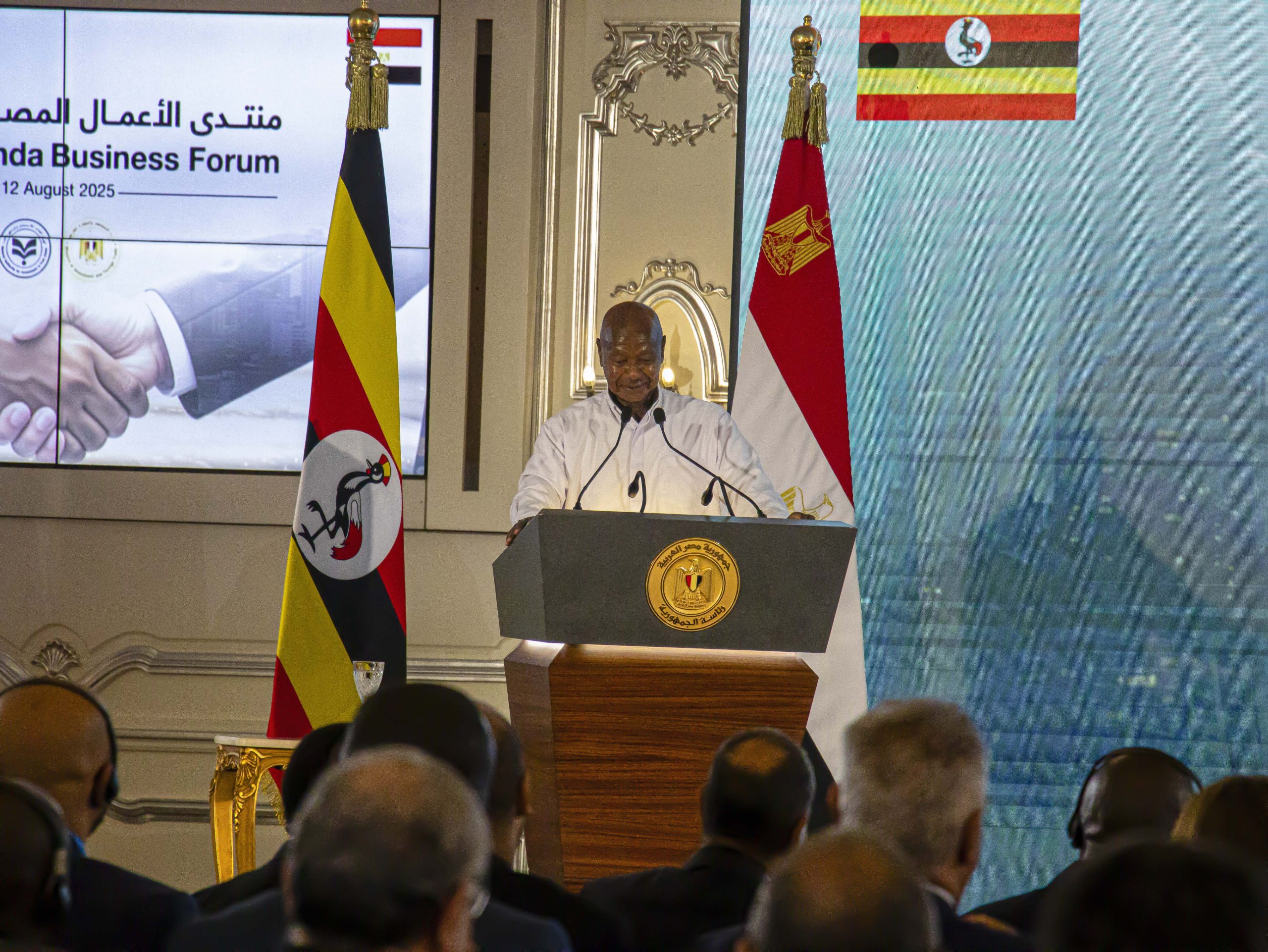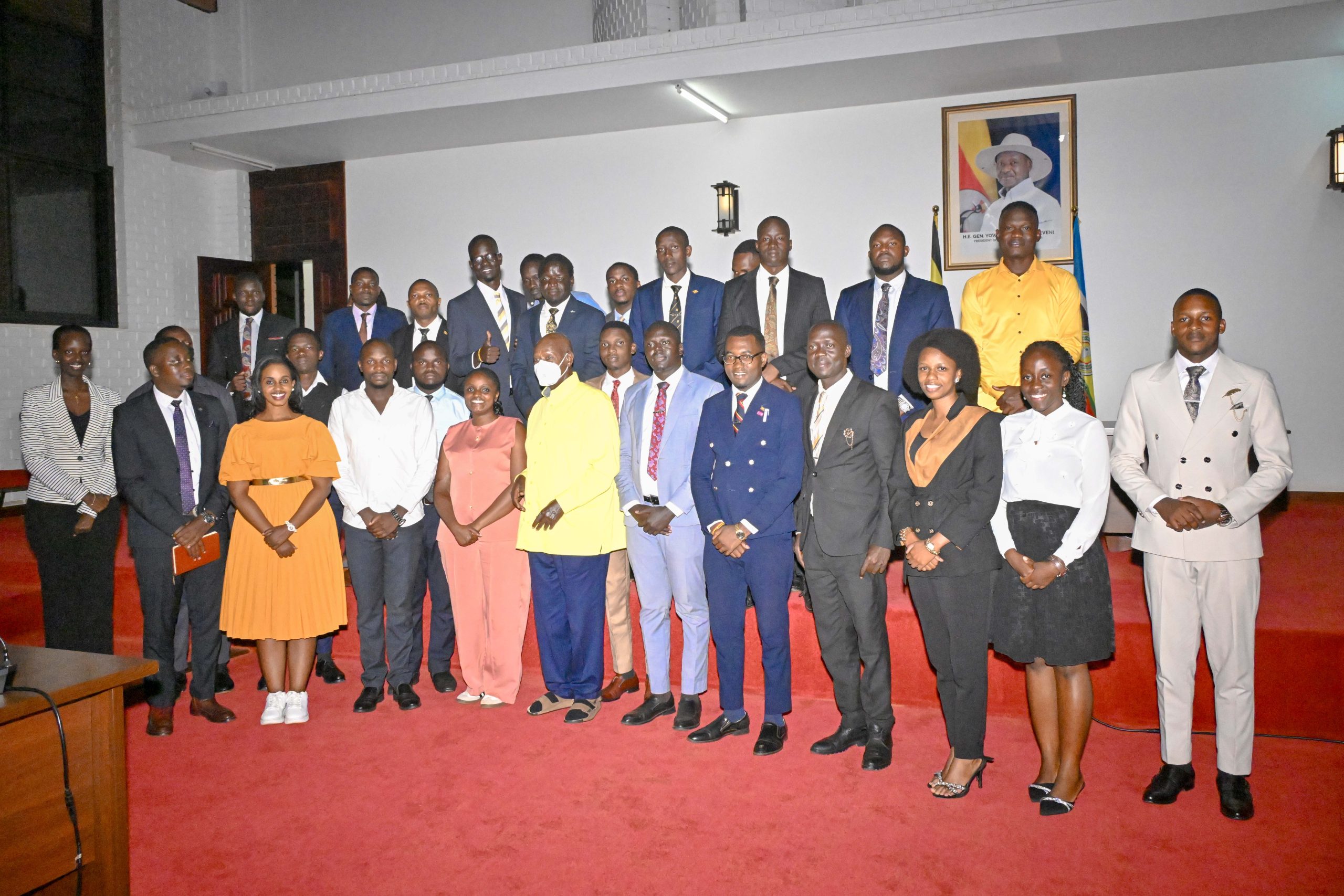During a meeting held today at State Lodge, Nakasero, the President said: “I am very happy to meet you. You are most welcome here in Uganda. This is the right place and time to invest. We have everything here.”
The group, including delegates from the American diaspora and others, are currently participating in the Pan-African Congress Business Forum, which began on October 6th and will conclude on October 12th, 2024, at Speke Resort, Munyonyo, Kampala.
The conference aims at strategizing trade and investment in Uganda as a gateway to the East African Community and Africa, positioning the country as a new technology and innovation hub for Africa, understanding the US standards and Uganda’s progress in improving compliance, leveraging the influence of the African diaspora in the US, among others.
The delegation was led by Mr. Odrek Rwabwogo, Chairperson of the Presidential Advisory Committee on Exports and Industrial Development (PACEID).
The investors expressed interest in various sectors such as manufacturing, tourism, food and vegetables, crafts, coffee, banana flour and vanilla.
They also discussed setting up a computer assembly plant in Uganda and positioning the country as a hub for technological manufacturing in the region.
President Museveni informed the delegation that Uganda, like much of Africa, is rich in resources and ripe for investment.

The President reflected on Africa’s historical struggles, tracing the continent’s exploitation by foreign powers over the past 600 years.
He recounted how Africa had been colonized by 1900, following centuries of plunder and the atrocities of the transatlantic slave trade.
President Museveni also linked Africa’s subjugation to selfish leadership, saying, “Our ego-centric chiefs and kings, out of selfishness, could not unite us to fight these people.”
The President further delved into the history of European exploration, explaining how the Ottoman Empire’s capture of Constantinople in 1453 blocked European access to the Silk Road, prompting explorers like Christopher Columbus and Vasco da Gama to seek sea routes around Africa.
While these explorations were initially positive for Europe, President Museveni emphasised that they soon became tainted by the evil of slavery.
“The first slaves were captured by the Portuguese in 1441. What should have been a celebration of scientific progress turned into 500 years of exploitation and wars,” he said.
The President also noted that technological advances such as shipbuilding, gunpowder, and the printing press were used not for humanity’s collective good but to oppress others.
On the other hand, President Museveni reiterated his vision for African prosperity, which he sees rooted in production and market access.
“If Africans want prosperity, it comes from producing goods or services and selling them,” he asserted.
President Museveni highlighted the need for African countries to access larger markets, pointing out that Uganda’s internal market of 46 million people is insufficient for sustained growth.
“The fragmentation of the African market is a big disaster,” he warned, adding that African nations must unite economically to avoid the fate of Latin American countries, which, despite their natural wealth, still rely heavily on the United States for prosperity.

“Despite their wealth in natural resources, they still run to the USA for medical care, education, and other benefits,” President Museveni said, stressing the importance of economic independence and collaboration for Africa’s future.
On his part, Mr. Richard Blackwell, a Chicago-based entrepreneur, also spoke passionately about the future of African economic growth and the need to work towards it. Representing investors, Mr. Blackwell emphasised the importance of dignity and opportunity for black communities globally.
“Your Excellency, I have watched many of your videos on YouTube and I was really impressed by your passion for Africa. What I realised is that you care deeply for Africa. When people live in dignity, the whole world can be better,” Mr. Blackwell said.
He stressed that black people should not remain at the bottom of global economic structures, expressing hope for a future where dignity and progress are accessible to all.
Reflecting on his personal journey, Mr. Blackwell shared insights from his childhood, growing up in a segregated neighbourhood in Philadelphia.
Despite the economic hardships faced by his family, he credited his parents for instilling values of character and perseverance.
“Our history, especially the history of black people in the U.S., is often overlooked,” he remarked.
Mr. Blackwell highlighted historical figures like James Forten, a successful African American businessman in the 18th century, who played a crucial role in the abolitionist movement.
He also drew inspiration from Booker T. Washington’s 1895 speech at the Atlanta Exposition, emphasising the importance of black economic inclusion in America’s development.
“Washington believed that if blacks are excluded from the economy, they will be disproportionately involved in crime. But if included, they can add immense value to the nation,” he noted.
Blackwell further discussed the parallels between the economic models of other nations and the potential for African development. He cited India’s economic transformation, which lifted millions out of poverty by focusing on services rather than manufacturing.

“In 1991, India reformed its economy, and in just 20 years, it moved millions of people out of poverty. This was largely due to doing business with the United States,” he explained.
He underscored the importance of creating a data-driven industry in Africa that could fuel growth across other sectors, particularly through analytics.
“In a commodities industry, if you don’t have sophisticated analytics, you won’t survive. Analytics will allow us to capture more value in global supply chains,” Mr. Blackwell noted.
Concluding his remarks, Mr. Blackwell called for the creation of world-class capabilities in Africa, starting with Ghana, to harness the power of data and services.
“We can build something powerful here, not just for Africa, but for the global stage. This is a journey we must take together, leveraging our collective strengths,” he noted.
The meeting was also attended by the Minister of Finance, Planning and Economic Development, Hon. Matia Kasaija.









